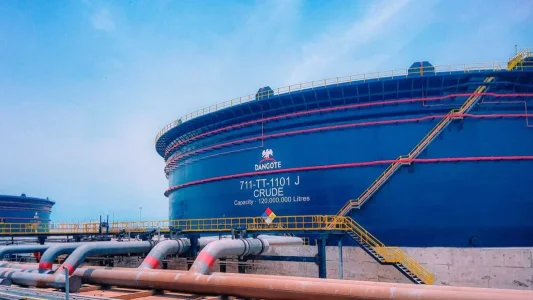
Nigeria's Finance Minister Wale Edun explains why multinationals are leaving due to foreign exchange issues, high energy costs, and regulatory challenges. Government efforts, including new policies and an Economic Stabilization Package, aim to improve the investment climate and attract more companies back to Nigeria.
As Nigeria struggles with significant economic challenges, a wave of multinational companies has been exiting the country, raising concerns about the stability of its business environment.
In a recent interview on Channels Television’s Sunday Politics programme, the Minister of Finance and Coordinating Minister of the Economy, Wale Edun, addressed these concerns and outlined the government's efforts to reverse this trend.
Minister Edun highlighted the lack of a liquid foreign exchange market as a critical factor driving multinational companies away. He acknowledged that, until recently, businesses faced significant difficulties in accessing foreign currency, which hampered their operations. "One of the major drawbacks...was they did not have a liquid foreign exchange market," Edun said.
However, he pointed out that the introduction of a willing buyer, willing seller foreign exchange market has improved the situation, although more work remains to be done to stabilize inflation and interest rates.
The Finance Minister emphasized recent executive orders signed by President Bola Tinubu, aimed at improving the investment climate, particularly in the gas sector. Nigeria's abundant gas resources are now more attractive to investors due to these regulatory changes. "Companies will always come and go...our aim is to not only keep them but to have them even more coming to invest," Edun stated, expressing optimism about the future.
To further support both local and foreign manufacturers, Edun mentioned an Economic Stabilization Package currently before the President.
This proposal aims to simplify business operations and foster a more conducive environment for investment. "We are in a difficult place but the direction of travel is towards improvement," Edun assured, highlighting the government's commitment to enhancing the economic situation daily.
The Finance Minister's remarks come in the wake of significant policy shifts, including the removal of petrol subsidies and the unification of forex windows, which have contributed to the current economic crisis.
These policies, while intended to stabilize the economy in the long term, have led to short-term challenges that have prompted some companies, such as Kimberly-Clark, Procter & Gamble, GlaxoSmithKline, Unilever, and Sanofi-Aventi Nigeria, to exit the market.
High energy costs and currency depreciation were also cited as major reasons for the departure of these multinationals. These issues have increased operational costs and reduced profitability, making it difficult for companies to sustain their businesses in Nigeria.
Despite these challenges, the Finance Minister remains optimistic about the future. He believes that the government's ongoing efforts to stabilize the economy and create a more attractive investment climate will eventually pay off. The improved foreign exchange market, regulatory reforms, and economic stabilization initiatives are expected to draw more multinationals back to Nigeria.
As Nigeria continues to navigate its economic challenges, the government's focus remains on creating a stable and welcoming environment for both existing and potential investors. The Finance Minister's insights provide a glimpse into the strategies being employed to retain and attract multinational companies, which are crucial for the nation's economic growth and development.




